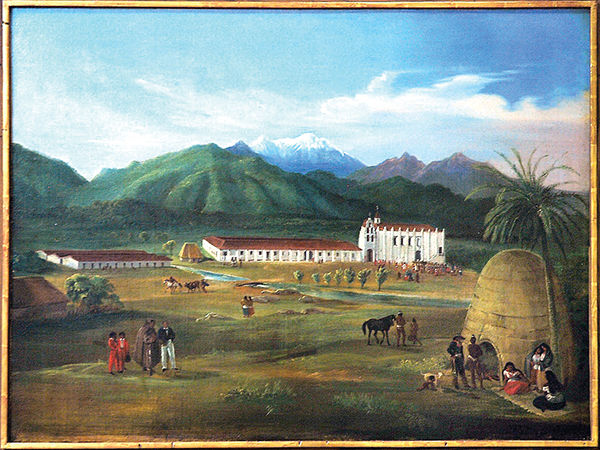Every people has a story they tell about their beginnings. A story about where they came from and how they got here. A story that helps them make sense of their identity, of who they are as a people.
We are all familiar with the story of America’s beginnings. It’s the story of the Pilgrims and the Mayflower. It’s a story about leaders — Washington, Jefferson, Adams. And big ideas — religious liberty, democracy, individual rights.
This story of American history is important. Every American should know about the men and women and the events and ideas that shaped this great country.
But in recent years, we’ve started to sense there’s something missing in this narrative. The story of America’s origins is not inaccurate. It’s just not complete.
That’s one of the reasons I wrote my little book last year, Immigration and the Next America: Renewing the Soul of Our Nation.
The immigration debate has been hard. But in this debate, we are becoming aware of the rich Hispanic heritage — and the growing Hispanic presence and influence — in our country.
And we’re starting to see that we need a new perspective on our history. So we can understand our present and our future. So we can prepare ourselves for the next America.
“You cannot understand more than 50 million of your fellow American without knowing this history,” Ray Suarez writes in Latino Americans: The 500-Year Legacy that Shaped a Nation. “More important, you won’t be able to understand the America that’s just over the horizon if you don’t know this history. Latino history is your history. Latino history is our history.”
Suarez wrote his book to go along with last year’s PBS documentary of the same name.
And his book is part of a new wave of studies that have come out in the last couple years — all seeking to explore America’s Hispanic roots and the Hispanic experience of America.
In this past year, we’ve seen two biographies of the missionary pioneer, Blessed Junípero Serra — Gregory Orfalea’s Journey to the Sun, and Steven Hackel’s Junípero Serra: California’s Founding Father.
Hackel, you may remember, was curator of an important exhibit last year at the Huntington, “Junípero Serra and the Legacies of the California Missions.”
This year has also seen the release of two interesting histories, West of the Revolution: An Uncommon History of 1776, by Claudio Saunt, and Our America: A Hispanic History of the United States, by Felipe Fernández-Armesto.
These books each have strengths and flaws. But they are worth reading because together they start to give us a new picture, an alternative history, the rest of the story.
We learn that Hispanics were here from the very beginning. Catholics founded America’s oldest settlement, in St. Augustine, Florida, in 1565, a generation before Jamestown or the Pilgrims.
In this alternative history, we meet leaders like the great Cuban-American, José Martí.
We meet war heroes like Macario Garcia. He was awarded the Purple Heart, our nation’s highest military honor, in World War II. But when he came home from the war, he was refused service at a restaurant in his hometown.
Sadly, the Hispanic reality — like the experience of Native Americans, African Americans and other immigrant groups — has been marked by discrimination.
We need to know this history, too. Like the sad story of the “great orphan abduction” in 1904 — when vigilantes kidnapped 40 Irish orphans who the Sisters of Charity had tried to place with Mexican families.
These new histories, unfortunately, are not so interested in the religious identity or traditions that Hispanics brought to this country. This is an area where the Church can help — through our religious education, our media, and our Hispanic ministry.
We need to tell the stories of the missionaries who first came to this country, and the stories of the great Hispanic saints and blesseds. We need to remind people that Mexico was the original cradle of Christianity in the New World.
This is National Hispanic Heritage Month (Sept. 15-Oct. 15). So it’s a good time for us to reflect on the Hispanic past and the Hispanic future of America.
The story of America isn’t over. So let’s keep praying for one another and for our country.
Let’s keep working for the beautiful vision of America’s founders — e pluribus unum — to create one people from out of the diversity of peoples, races and creeds who have come to call this land their home.
May Our Lady of Guadalupe, Mother of the New Evangelization, guide us and strengthen us as we seek to renew the soul of our nation.
Archbishop Gomez is the author of “Men of Brave Heart: The Virtue of Courage in the Priestly Life” (Our Sunday Visitor, 2009) and “Hombres de corazón valiente: La virtud de la fortaleza en la vida sacerdotal” (Spanish Edition).

